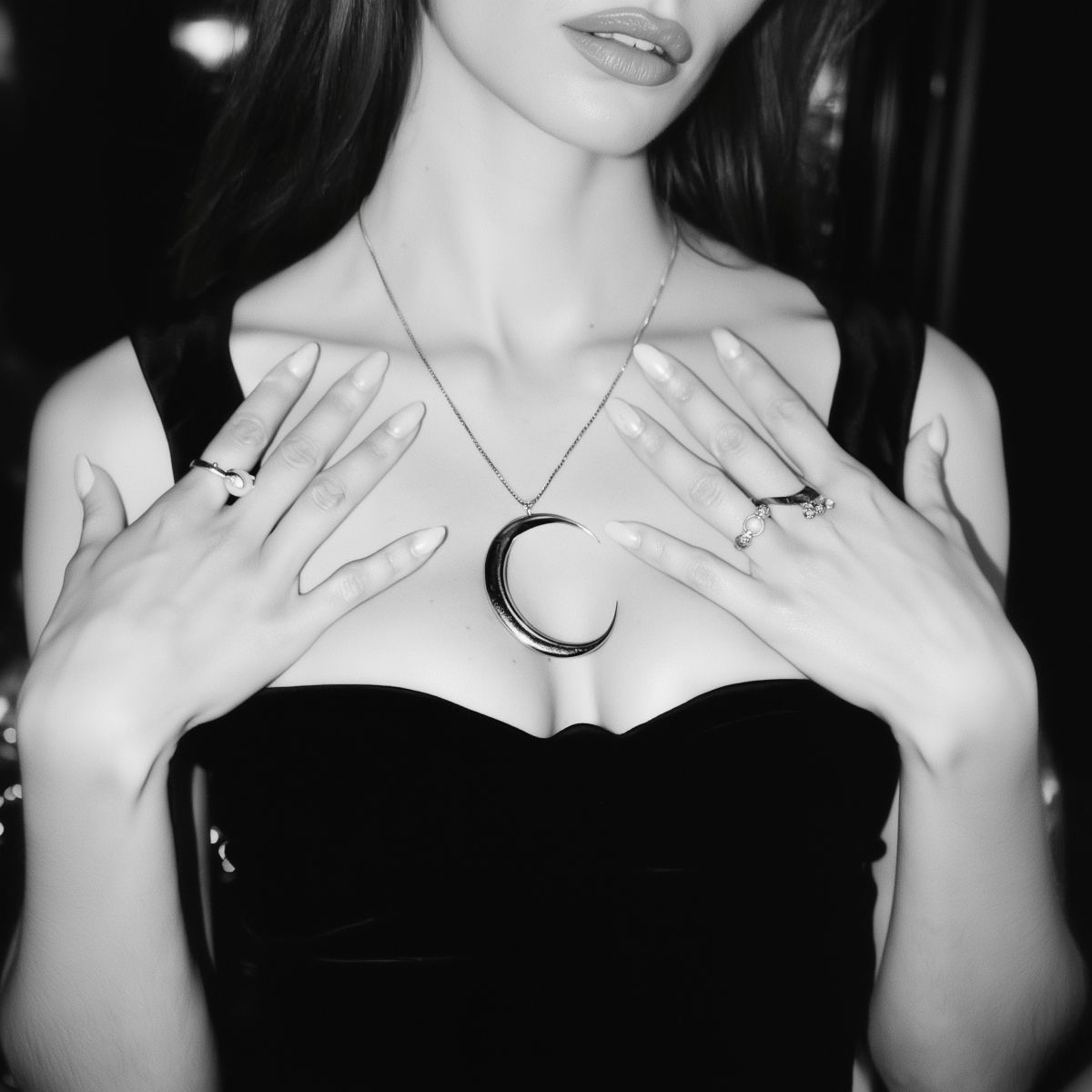
Moon Square Pluto Natal Aspect
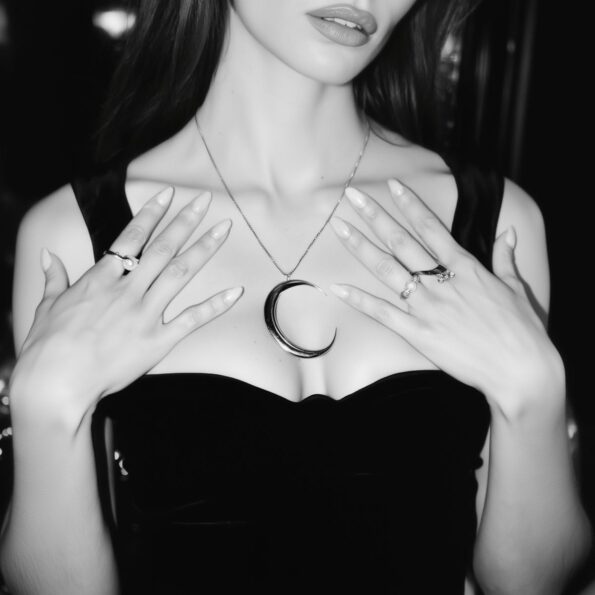 With Moon square Pluto in your natal chart, the soft glow of moonlight is pierced by an intrusive thought: “But what if they betray you?” This aspect doesn’t lend itself to casual selfhood. It’s more “descend into the underworld, tear your emotional entrails apart, stitch them back together with golden thread, and rise anew like some paranoid phoenix.” There’s a natural mistrust. It’s because you’ve felt emotional betrayal. Your emotional feelings are to dialed to “hyper-aware of the subtext in your subtext.” People say something nice and you’re already wondering what they really mean. This square doesn’t like vulnerability unless it’s been tested, tried, and put through a security check. This aspect isn’t about occasional moodiness or a splash of intensity; it’s a lifelong struggle between your need for emotional safety and your compulsion to dig beneath the surface, even if what you find there frightens you. The Moon rules your inner life—it longs for comfort, emotional belonging, and the safety of being accepted without question. It wants mother’s hug, a warm bath, a familiar song. But Pluto doesn’t do lullabies. Pluto is the underworld god who sits in the dark corners of your psyche and asks, “But why do you need a hug? What are you afraid of?
With Moon square Pluto in your natal chart, the soft glow of moonlight is pierced by an intrusive thought: “But what if they betray you?” This aspect doesn’t lend itself to casual selfhood. It’s more “descend into the underworld, tear your emotional entrails apart, stitch them back together with golden thread, and rise anew like some paranoid phoenix.” There’s a natural mistrust. It’s because you’ve felt emotional betrayal. Your emotional feelings are to dialed to “hyper-aware of the subtext in your subtext.” People say something nice and you’re already wondering what they really mean. This square doesn’t like vulnerability unless it’s been tested, tried, and put through a security check. This aspect isn’t about occasional moodiness or a splash of intensity; it’s a lifelong struggle between your need for emotional safety and your compulsion to dig beneath the surface, even if what you find there frightens you. The Moon rules your inner life—it longs for comfort, emotional belonging, and the safety of being accepted without question. It wants mother’s hug, a warm bath, a familiar song. But Pluto doesn’t do lullabies. Pluto is the underworld god who sits in the dark corners of your psyche and asks, “But why do you need a hug? What are you afraid of?
So the square—this hard, pressurized angle—creates a kind of emotional turbulence. You may have grown up in an environment where the emotional atmosphere was thick with unspoken secrets, control, or manipulation. Perhaps you sensed things weren’t safe, even when nothing was said aloud. You developed this exquisite sensitivity, a radar for unexpressed motives, but also a habit of armoring yourself, of guarding your vulnerability. You feel deeply, but these feelings are rarely soft or simple. They arrive in waves—powerful, consuming, laced with suspicion or longing.
There’s a part of you that wants to merge completely with someone, to know them in their entirety, to be known in yours—but also a fierce need to remain hidden, safe, impervious to betrayal. Love, then, becomes a battle between surrender and control.
And let’s not forget how this shows up in your spiritual life. With this placement, psychological and mystical pursuits are necessities. You dive into shadow work because your soul calls for nothing less. Catharsis is your rite. There’s a sense that if you don’t examine the darkest corners of your psyche, they’ll swallow you whole. So you read Jung, burn sage, and scream into pillows. But there’s something almost redemptive in this struggle. Each time you go deep, each time you face the ghosts of the past—you reclaim a piece of yourself. You begin to learn that vulnerability isn’t weakness—and that even mistrust can be a teacher. And control, though seductive, is a poor substitute for authentic connection.
This journey isn’t linear. There’ll be relapses into suspicion, bursts of defensiveness, and moments when the weight of feeling feels too much. But with time, and a healthy dose of self-compassion, this Moon-Pluto square transforms. It where empathy deepens, and where your inner life becomes a source of power. You may have been born under a stormy sky, emotionally speaking—but don’t forget, storms clear the air. They break stagnation. And they remind us, always, of the wild, mysterious beauty of being alive.
The Magnet of Pain
In astrological readings of this aspect, it tends to bring up haunted dialect of emotional karmas and patterning—the sort of thing the more psychologically-inclined astrologers gossip about with worn copies of The Drama of the Gifted Child by their bedside. And they’re not wrong. A Moon square Pluto attracts pain like a moth to a beautifully tragic flame. But this isn’t masochism. It’s magnetism, subconscious and mysterious. If you’ve been wounded early—and what a word “wounded” is, so real and clinical at once—if some part of your emotional self was denied, controlled, manipulated, or shattered in those formative years, your psyche may now orbit around this trauma like a moon around its own inner Pluto. You don’t look for healing in a peaceful meadow, but in the thick underbrush of entanglement.
It’s the strange agony of this aspect—it invites people or situations that trigger your deepest, most buried feelings. Your soul, in its infinite knowing, keeps saying, “Let’s try again. Maybe this time, we heal.” So what happens? You might find yourself in relationships where power is imbalanced, where love comes with ultimatums, or where emotional intensity substitutes for intimacy. There may be jealousy, emotional manipulation, or just a general sense that everything is too much and never enough at the same time. And still, you stay. Because somewhere inside, there’s a hope that if you can just survive this, understand this, maybe even fix this—you’ll rewrite the past.
But you’re not meant to fix those people or redeem those patterns. You’re meant to see through them. To recognize that your worth was never in question. Love doesn’t require sacrifice on the altar of your sanity. And real connection doesn’t demand you hide your softness behind suspicion. These patterns, painful as they are, do carry gifts. They push you towards therapy, spiritual practice, self-inquiry. They make you emotionally intelligent, acutely empathetic, and weirdly wise. You become the kind of person who can sit with someone in their darkest hour and not flinch—because you’ve been there. You’ve stared into the abyss and made a little home there.
Astrologers are onto something. Your past pain can cast a long shadow, and you may be drawn to relationships that mirror your early wounds. But with awareness, with time, and with Pluto’s transformation, those very patterns become the map out of the maze. The pain that once imprisoned you becomes the key.
A Cathartic Emotional Lie
With the Moon and Pluto in aspect, you may even live out a cathartic emotional lie. What does it mean? To live the cathartic emotional lie is to mistake purging for healing, to believe that if you just feel enough, cry hard enough, dig deep enough into the pain, you’ll emerge reborn. And sometimes you do. But sometimes, you’re just cycling through the same emotional pain. With Moon square Pluto, there’s a compulsion— a subterranean pull—to cleanse, to rid yourself of whatever threatens your emotional sanctum. Old attachments, trust issues, shameful feelings, perceived slights… they all get dragged up like psychic sludge. The Moon says “Let’s just be okay, please.” And Pluto says, “Not until we’ve burned it all down.”
There’s this sense that your emotions are forces, tides or volcanic eruptions. And when you’re triggered—it doesn’t feel like a mild irritation or a passing mood. It feels like your very survival is at stake. You’re not mad; you’re possessed. Not sad, but consumed. You’re reliving ten years ago, or the moment love went sour, or that time you learned the world wasn’t safe. It’s time travel, but the painful kind. And you often know you’re being pulled under, but you can’t stop it. The Moon governs the unconscious, our emotional instincts. Pluto governs the underworld, transformation, death and rebirth. Together, they conspire to create an internal landscape where even the slightest emotional bruise can echo like a scream in a canyon.
You might feel, at times, like your emotional life is a battleground—fought within yourself. You long for stability, peace, ease. But peace feels alien. It feels suspicious. You’ve been wired, by history or habit, to expect pain and then respond to it with intensity, because intensity feels real. Drama feels true. Catharsis feels like progress—even if it’s just another turn of the emotional wheel. But, and here’s where the medicine lies, this “cathartic emotional lie” contains a hidden reality. Your emotions are valid, but they aren’t always right. They are indicators, not oracles. You don’t always have to do something with them. You can feel them fully. You can say, “Yes, I feel like I’m drowning right now. But I know the tide will recede.”
When you begin to see the cycle, to hold space for your emotional intensity without becoming it, you start to reclaim your power. This placement can feel like living an emotional epic every day. But you are not doomed to repeat fate. You’re the alchemist. You just haven’t realized yet that you can stop stirring the cauldron and step into the light.
Female Figures
The Moon is the Mother—biologically, emotionally, symbolically, and psychically. It is how you were held, if you were held, and what you learned about the terrifying and beautiful business of feeling. With Moon square Pluto, the mother figure often arrives cloaked in complexity. She may have been fiercely loving yet emotionally volatile, nurturing yet intrusive. She could’ve been a woman burdened by her own trauma, carrying the ghosts of past generations, and doing her best to love—but sometimes doing so through control, fear, or overprotection. The love may have been intense, but it came with an edge. It wasn’t simple. It was charged.
You, as the moon-child in this dynamic, learned something essential early on: emotions are dangerous when exposed. Perhaps you revealed a vulnerable feeling once and were met with judgment, dismissal, or chaos. Perhaps you saw your mother’s emotions spill over like hot oil, unpredictable and scalding. Either way, your emotional system adapted—it armored up. You became private, guarded, fiercely protective of your inner world.
According to Isabel Hickey, this represents what she called the “lone wolf” aspect of personality. It isn’t loneliness—it’s emotional self-preservation. It’s not that you don’t want connection, it’s that you’re unwilling to risk humiliation, betrayal, or the raw exposure that might come with truly being seen. You’ll show up with wit, intensity, depth—but the vulnerable stuff? It stays tucked away, unless it’s in the sanctified space of deep trust. And even then, part of you is always watching the exit.
Because you feel everything intensely. The smallest slight can feel like a betrayal. An offhand comment might reverberate for days. You’re hyper-attuned. You take things personally. But this emotional depth, once understood, becomes your genius. You can read people’s pain before they speak it. You can sit in silence and know what’s unspoken. You can write, speak, create, and love in a way that transforms. But only after you’ve begun the process of unravelling the old story—the inherited myth that vulnerability equals danger.
You are not your mother’s pain. You are not the storm you were raised in. But you are the thunder and the rain and the quiet afterward. Your task—your Plutonian journey—is to feel without fear, to trust without collapsing, and to protect yourself without building a fortress so tall that no light gets in. And if you need to howl now and then, dear lone wolf, do it under the moon you came from. It’s still yours. Always was.
So, let’s move on to talking about all of the women in your life—this is a juicy, complicated bit. The Moon, of course, is the mother, the feminine, the emotional. And when Pluto’s involved, those female figures can be transformational or treacherous—or both at once. You might have experienced women as powerful but unpredictable. They might’ve had secrets, control issues, or their own deep emotional wounds. This creates a kind of inner suspicion: intimacy with women (or feminine figures in general) always comes with a catch.
But here’s the silver lining—because Pluto, for all its menace, doesn’t only bring darkness. It’s the awakener. It tears down illusions. You, more than most, are capable of astonishingly loyal, intimate bonds with women—ones that go beyond surface friendship into soul territory. But the shadow is always lurking. Jealousy, emotional manipulation, silent wars… they can play out especially within female friendships or family relationships, particularly if emotional power is imbalanced.
You’ll need discernment. Not paranoia, not overprotection—but a bit of objectivity. Some people do come with hidden agendas. Some dynamics are karmic, needing to be seen, cleansed, released. But not all emotional closeness is a trap. Not every woman is your mother in disguise. And not every emotional bump is a betrayal in waiting. This placement is a bit like owning a psychic Geiger counter—it’ll alert you to emotional radiation, but it can also go off just from the heat of your own inner volcano. Learn when it’s truly danger, and when it’s just your own fear mirroring back at you.
Your loyalty runs deep. You don’t do shallow. And when you give your trust, it’s a holy thing. Pluto teaches hard lessons—but once you’ve integrated them, you become the kind of friend, partner, or family member who offers unwavering emotional depth, fierce loyalty, and the kind of love that transforms lives.
Where Feelings Go to Rise Again
You don’t live on the emotional surface like some people, paddling around in the shallow end with mild disappointments and light irritation. You’re down in the trenches, in the psychic womb and tomb of transformation. Every feeling can feel like an ending. Every trigger, a mini-death. But what rises in its wake… now that’s where the magic is. With this aspect, your emotions aren’t polite or neatly categorized. They don’t announce themselves with a knock at the door and a cup of chamomile tea. They erupt. Sudden, intense, primal. You can go from fine to devastated in moments. This isn’t because you’re unstable, but because the emotional underworld is always just a breath away.
Your soul seems to insist on taking the scenic route through grief, longing, rage, ecstasy—all of it, often within a single afternoon. This cycle of emotional death and rebirth is part of your inner transformation. Some people suppress or bypass their emotions. You? You let them rot, break down, and then turn them into insight. You feel to heal in the truest, rawest sense. And it’s exhausting. It’s lonely. It can make you feel like there’s something wrong with you when the world rewards detachment and punishes depth.
There may be times when you feel like you’re emotionally dying—slowly, silently, beneath the surface. The emotional “deaths” come when something inside you—some illusion, attachment, fantasy—has to die in order for your truth to live. It might be a belief about who you are, a dynamic that no longer serves, a memory that’s kept you stuck. These aren’t polite transformations. They’re messy. They might come with tears, with solitude, with the sense that you’ve lost yourself entirely. But just when you think it’s over, just when you’re certain the darkness has won… you begin again.
You are, in a very real sense, a phoenix of feeling. Each emotional collapse makes room for a deeper undertanding. Each surrender deepens your capacity to love, to connect, to be real. This doesn’t mean you seek out pain. It means pain becomes a portal. You go through death and birth within yourself, over and over. And maybe the world doesn’t see it. Maybe people say you’re “too much” or “so intense.” Let them. You’re living the mythic life, the soul-deep story.
Deep Emotional Connections
Now, we come to the real test—the place where all this Plutonian passion and lunar sensitivity meets another human being. And what a meeting it is. Because when you carry Moon square Pluto into relationships, you don’t show up with a nice little pink suitcase of preferences and quirks. You’re bringing a psychological cauldron, a heart that remembers every betrayal, and a soul that wants transformation through connection.
You love intensely, but not easily. You might appear composed on the outside, maybe even cool or guarded. But inside? There’s a molten river of emotion—rich, chaotic, dark, terrifying. And this emotional depth doesn’t only stay with you; it seeps into your relationships. Lovers don’t “date” you. They encounter you. They either grow—or they run. Let’s be fair, you’ve likely been through some form of emotional wounding, and so you don’t let people in without a full security scan. You need loyalty, honesty, emotional integrity. If someone lies, manipulates, or withdraws when things get intense, it doesn’t just sting—it destroys trust entirely. You may forgive, but you never forget. And that can make relationships… volatile.
For a partner, being with you means handling your depth without fearing it. It means not retreating when the emotional waves come crashing in, not gaslighting you with “you’re overreacting” when you’re actually just tapping into something real. You need someone who respects the seriousness of your emotions without making them into a spectacle. There’s also the issue of control—because when you fear emotional abandonment, it can trigger deep survival instincts. You might try to control the relationship subtly, wanting to know everything, test loyalty, or withdraw emotionally as a pre-emptive strike. You often do it because you cannot bear another emotional annihilation. You’ve been there. You know what it feels like. You want to avoid it like a seasoned trauma veteran.
But here’s the catch—and the path to healing: when you find a partner who can hold space, who can remain calm in the storm, who can see you in all your volcanic eruptions and still stay… this is when the magic happens. Because love, for you, isn’t casual. It’s a holy ritual. It’s death and rebirth, intimacy and exorcism. And when it’s safe? When it’s mutual? It’s absolutely transcendent. Your task is to learn that every argument doesn’t have to tun into the apocalypse, every silence isn’t a betrayal. intimacy can be safe. And your partner isn’t your enemy—they’re your co-pilot on this journey through emotional alchemy. Relationships for someone with Moon square Pluto are never easy. But they are real, raw, and transformative.
For someone carrying Moon square Pluto, emotional rejection is devastating. It touches something primal. It’s not “Oh, they don’t like me.” It’s “I am unsafe. I am unlovable. I must now retreat into the underworld and emerge stronger, but changed forever.” Rejection, in your case, isn’t taken at face value. It’s read forensically. It’s analyzed, felt, relived, embedded into your internal mythos. It confirms a core fear: that if someone truly sees you, they’ll walk away. So what do you do? You either hide your true emotions behind control and sarcasm, or you test people—prodding subtly to see if they’ll stay. It’s like emotional Darwinism: only the strong survive your defenses.
Heavy Emotional Demands
In some relationships, especially those that matter most—the ones that touch your soul. You may carry heavy emotional demands. But let’s call them what they are: needs so vital they feel like survival. You don’t want a bit of attention, a text back, or some light banter. You want total presence. Full psychic availability. You want to merge—soul to soul, shadow to shadow. You want to know someone in their entirety, and be known in yours, without the mask, the performance, the cowardice.
And if this isn’t offered? If someone is evasive, withholding, or—gods forbid—disloyal? You might become jealous, possessive, or prone to emotionally testing your partner. It’s because you’ve been hurt, and hurt deeply. You learned that to be vulnerable is to be at risk, and so you protect yourself with intensity. You may not go full scorched-earth—but you might fantasize about it. Especially if you feel wronged. Especially if someone breaks the contract of emotional fidelity.
This is when the periodic crisis comes in. Your life, if you’re not careful, can become punctuated by emotional cataclysms—relationships that implode, friendships that burn out dramatically, moments where you feel like the world is ending because someone has touched a raw nerve. And these aren’t mild upsets. These are full psychic resets. Death-rebirth spirals. Emotional apocalypses with an encore. But these crises aren’t senseless. They’re purification. Each one strips away illusion. Each one burns through ego. Each one leaves you a little stronger, a little clearer, a little more discerning.
Still, there’s a learning curve. You must realize that your emotional life is valid, but not every emotion needs to be acted upon. Some need to be breathed through. Because when you do that—when you stop externalizing the war and instead find peace within your own trenches—you become a magnetic, powerful presence. The kind of person others trust with their secrets. The kind of lover who heals. The kind of friend who can sit with someone in their darkest hour and say, “I know this place. I’ve been here too. And there’s a way out.”
You can burn emotional bridges—and this isn’t done with a petty match, but with a torch fueled by the full history of your emotional wounds. When you feel deeply betrayed, it’s a spiritual severing. There’s a profound sense that the betrayal reached into your childhood, your past, your karmic bloodstream. And so when you walk away, you do so with fire in your eyes and thunder in your chest. It was never that you didn’t care—it’s that you cared too much. It’s the tricky thing about this placement: your emotional pride. You hold your feelings close because you know what it means to love truly, to feel without filter. When someone mishandles that—when they treat your emotions as disposable—it’s a desecration.
But here’s the lighter side of that coin: when you love, you do it with your whole being. You’re not half in. You don’t play games. You are ride-or-die, soul-deep, I-will-carry-your-wounds-if-you-let-me kind of loyal. It’s beautiful. It’s the medicine of Pluto at its best—transformational, regenerative, the kind of presence that elevates.
You have an innate feel for psychology—maybe you’ve read the books, but more importantly, you live in the emotional substratum. You see through people. You feel what they don’t say. You know when someone’s smiling with sadness behind their eyes, or when a loved one says, “I’m fine,” but they’re actually fracturing inside. And you care. Deeply. Never in the superficial, “let me know if you need anything” way. But in the “I will sit with you in your grief until the sun rises” way. You are, despite all your intensity, a deeply loving soul. And when your loyalty is matched, when someone can hold space for your depth without flinching—you become one of the most nurturing, healing, spiritually profound companions on this earth.
You can burn. But you can also warm. You can resurrect. You can teach others how to feel again in a world that’s forgotten how. So forgive yourself when the bridge burns. Honor the part of you that sets fires in self-defense. But remember too: your soul was made to connect. Your depth isn’t a burden. It’s a gift. And when it’s held with love—by others or by yourself—it becomes the kind of healing this weary world so desperately needs.
Dark Premonitions
Moon square Pluto is like having a psychic antenna permanently tuned to the station where other people keep their secrets. You’re feeling what’s underneath, what’s behind the mask, what’s not being said. You walk into a room and know who’s tense, who’s lying, who’s bleeding internally while sipping coffee and smiling. It’s emotional clairvoyance. Some might call it psychic. Others would call it trauma-informed hyper-vigilance. Either way, you are dangerously tuned in. You can pick up vibrations that most people don’t even realize they’re giving off. You know when a friend is about to drift, when a partner’s heart has shifted, when a betrayal is looming behind the curtain of daily routine.
But because you’re so tuned in, you’re also vulnerable to over-reading. The Moon is a feeler, not a thinker. She doesn’t analyze, she absorbs. And Pluto? This planet mutters apocalyptic maybes. So your internal dialogue can sometimes sound like: “They were quiet. That means they’re hiding something. Something awful. Everything is going to collapse.”
Your insights can be profoundly accurate. You can read emotional patterns like a mystic. But when your fears are triggered, your moon might slip into shadowy storytelling. So, how to handle this? First: trust the intuition, but verify the facts. Your first hunch is often gold—but let it breathe. Give it time. Don’t make it law just yet. Let your emotions settle before issuing warnings. Second: ground the moon. Literally and spiritually. Spend time in your body, in nature, in activities that make your nervous system feel safe. Journaling helps. So does ritual, gardening, therapy, and dancing naked under the moonlight—though maybe check for neighbors. Third: compassionate self-talk. When the paranoid moon starts talking about doom, talk to her like you would a frightened child. “Yes, I know you’re scared. I know this feels familiar. But let’s see what’s really happening before we run for the hills.”
And finally, remember: if you feel dark premonitions it’s often because you can see what others can’t. You can feel what others avoid. But this doesn’t mean everything you feel is a prophecy. Sometimes, it’s the past trying to reassert itself. And you are allowed to choose a different ending this time.
“Emotionally Intense”
Pick up any astrology book about this contact, and you’ll see the classic astrological shorthand: “Emotionally intense.” Slapped onto Moon-Pluto aspects like a “fragile” sticker on a box of dynamite. As if this explains it all. As if we don’t deserve to know where this emotional intensity is birthed—from what womb it howled into existence. Let’s pull back the curtain. Your emotional intensity doesn’t just appear. It isn’t drama for drama’s sake. It’s born from depths. From places most people never visit in themselves. From moments in childhood, or even before, where emotions were survival mechanisms. You learned, perhaps too early, that love wasn’t always safe. Trust could be turned against you. Closeness came with a cost. So you became emotionally vigilant, emotionally profound, emotionally provocative, even—because feeling was never shallow. It was serious business.
Pluto, the dark planetary force, says: Feel everything. Or be consumed by what you repress. And your Moon, the keeper of memory and need, says: I just want to be safe, but I also want what is real. So the intensity is the byproduct of emotional paradox. A need to connect, and a fear of what connection might expose. A craving for intimacy, paired with a desperate need for control over how much of your soul gets seen. But let’s not reduce it to pathology. Because here’s the positive power of your emotional provenance: you feel what is really going on. Where others skim the surface, you dive. When someone is suffering, you feel it in your bones. When something is off, you’re haunted by it until you understand.
This emotional richness makes you capable of extraordinary healing. You’re the person friends turn to when their world falls apart, because you don’t flinch. You’ve lived in ruins and built altars there. You don’t offer easy advice—you offer soul advice. Real talk. Raw compassion. The kind of presence that makes someone feel seen in their darkest moment. But there’s the shadow side, too. The intensity can tip into suspicion. Into emotional manipulation. Into holding on too tight, or cutting someone off too suddenly. Into revenge when you feel humiliated, because you don’t just hurt—you implode. And yet even this is understandable. You’ve been forced to develop an emotional weaponry just to survive. You are not “too much.” You are the right amount, just in a world that often prefers numbness.
So when astrologers say “emotionally intense,” they’re only telling the last page of the story. Your intensity is your origin.
Because let’s face it, you need emotional intensity like a fish needs water. It’s your native habitat. You’ aren’t satisfied unless the air between you and another person is thick with feeling, tension, revelation. You might not always do this consciously—but something in you can’t stand emotional pretense. You sense when someone is being fake, and you start peeling at their surface like wallpaper. You ask questions that slide past the ego and land squarely in the soul. And often, it works. People reveal. They break open. They trust you because they feel seen—because you’re one of the few who wants to see them fully, even the messy bits.
But… here’s where it gets tricksy.
Sometimes, in this pursuit of catharsis and emotional connection, you might unconsciously stir someone else’s pain. You do it as a way to move your own emotion. You provoke because you need to feel something deeply. Because something inside needs release. Because you want a purge. And when the fire’s burning in you, it’s easy to strike a match in someone else, hoping their flames will reflect your own. This is where it can backfire. Not everyone wants to go that deep. Some aren’t ready. Some have wounds too fresh, or boundaries too brittle. What you see as honest inquiry, they might feel as intrusion. What you offer as depth, they may receive as demand. And if they resist or recoil, it can sting—because then you feel rejected, misunderstood, unreceived. And it can trigger a spiral of withdrawal, suspicion, or emotional vengeance.
So what’s the medicine? Self-awareness. Ruthless, gentle, curious self-awareness. You must learn to pause and ask, “Am I seeking what is underneath—or am I seeking validation? Am I helping them reveal themselves—or am I trying to process my own stuff through their reaction?” Because your power is immense—but it must be wielded consciously. Otherwise it becomes manipulation. You are, at your best, a soul-deep companion. Someone whose emotional loyalty is so intense it borders on spiritual. But with this same depth comes emotional expectation—and sometimes, unconscious control. You must be honest about that. This isn’t to shame yourself, but to liberate yourself. Because when you bring awareness to your motives, your relationships stop being battlegrounds and start becoming places of real commitment. You stop provoking for the sake of feeling something, and start inviting people into a space where both of you can feel safely, authentically, and without fear of emotional landmines. So go ahead, provoke—with love. Stir—with intention. And always, always keep an inner eye open, asking: What am I really seeking here?


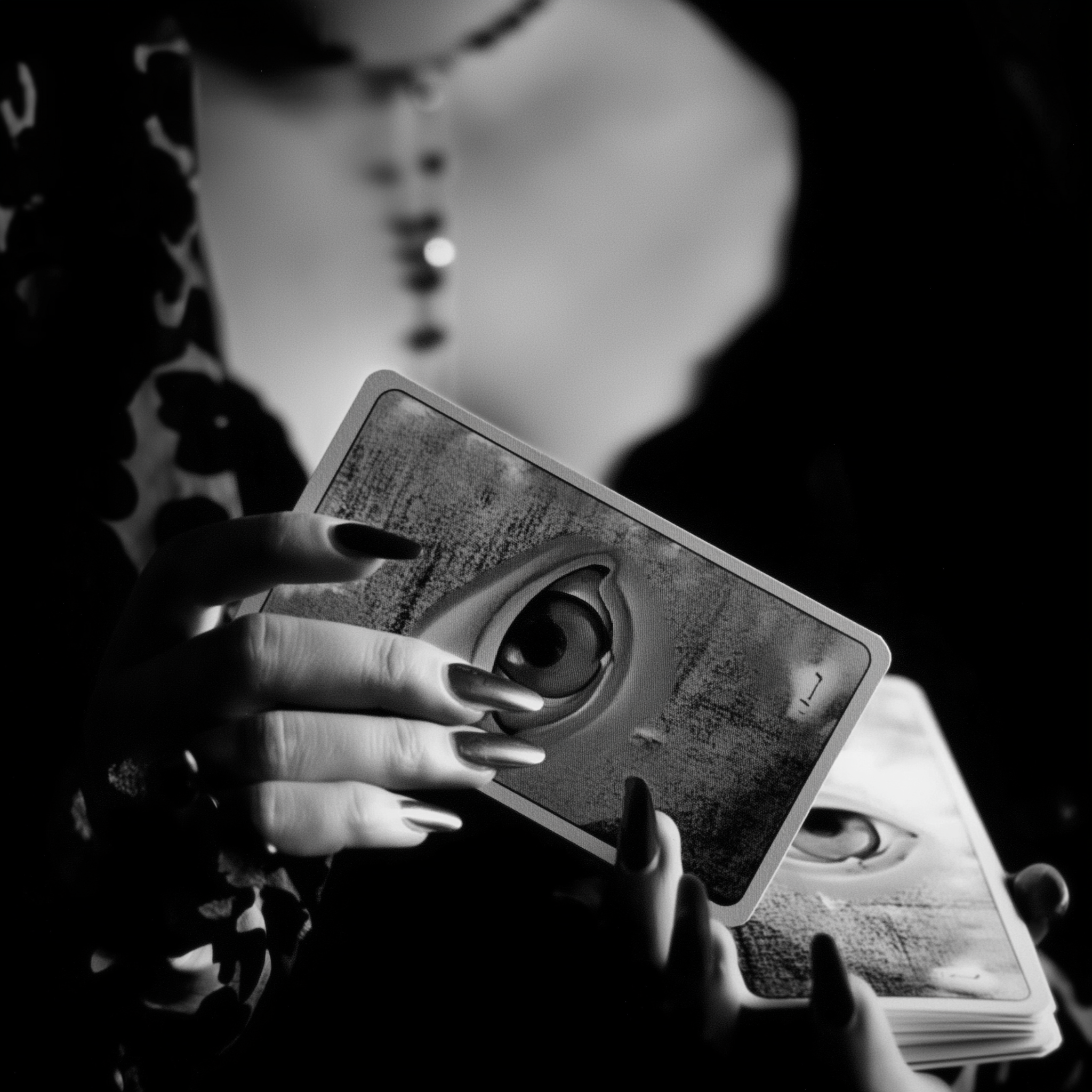



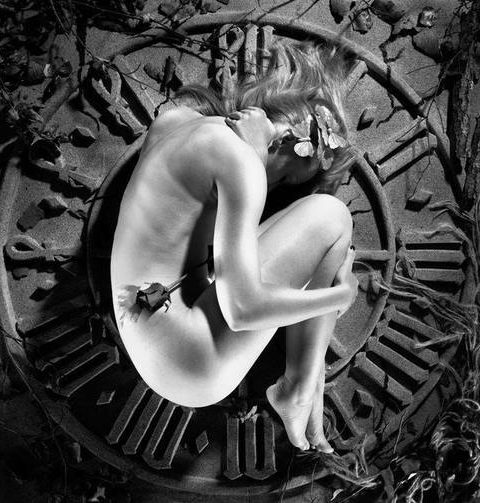
 Uranus Transits: 1st House: Winds of Change:
Uranus Transits: 1st House: Winds of Change:
 Uranus Transits 8th the House: Rebirth from Chaos
Uranus Transits 8th the House: Rebirth from Chaos
 Venus-Pluto Synastry: A Love So Powerful That It Might Just Kill Them
Venus-Pluto Synastry: A Love So Powerful That It Might Just Kill Them
 Sun Conjunct Pluto Synastry: Enlightening or Annihilating
Sun Conjunct Pluto Synastry: Enlightening or Annihilating
 Mars Conjunct Pluto Synastry
Mars Conjunct Pluto Synastry
 Venus Conjunct Pluto Natal Aspect
Venus Conjunct Pluto Natal Aspect
 Uranus Transits the 4th House: The Chaotic Path to Personal Inner Growth
Uranus Transits the 4th House: The Chaotic Path to Personal Inner Growth
 Uranus in the 2nd House: The Price of Freedom
Uranus in the 2nd House: The Price of Freedom
 Transiting Uranus Trines Mercury: Through New Eyes
Transiting Uranus Trines Mercury: Through New Eyes
 Scorpio’s Cold Withdrawal
Scorpio’s Cold Withdrawal
 Flash Forward: How Uranus Reveals Your Future Before You’re Ready
Flash Forward: How Uranus Reveals Your Future Before You’re Ready
 Uranus Transits Mars: My Eco-Lifestyle Changes
Uranus Transits Mars: My Eco-Lifestyle Changes
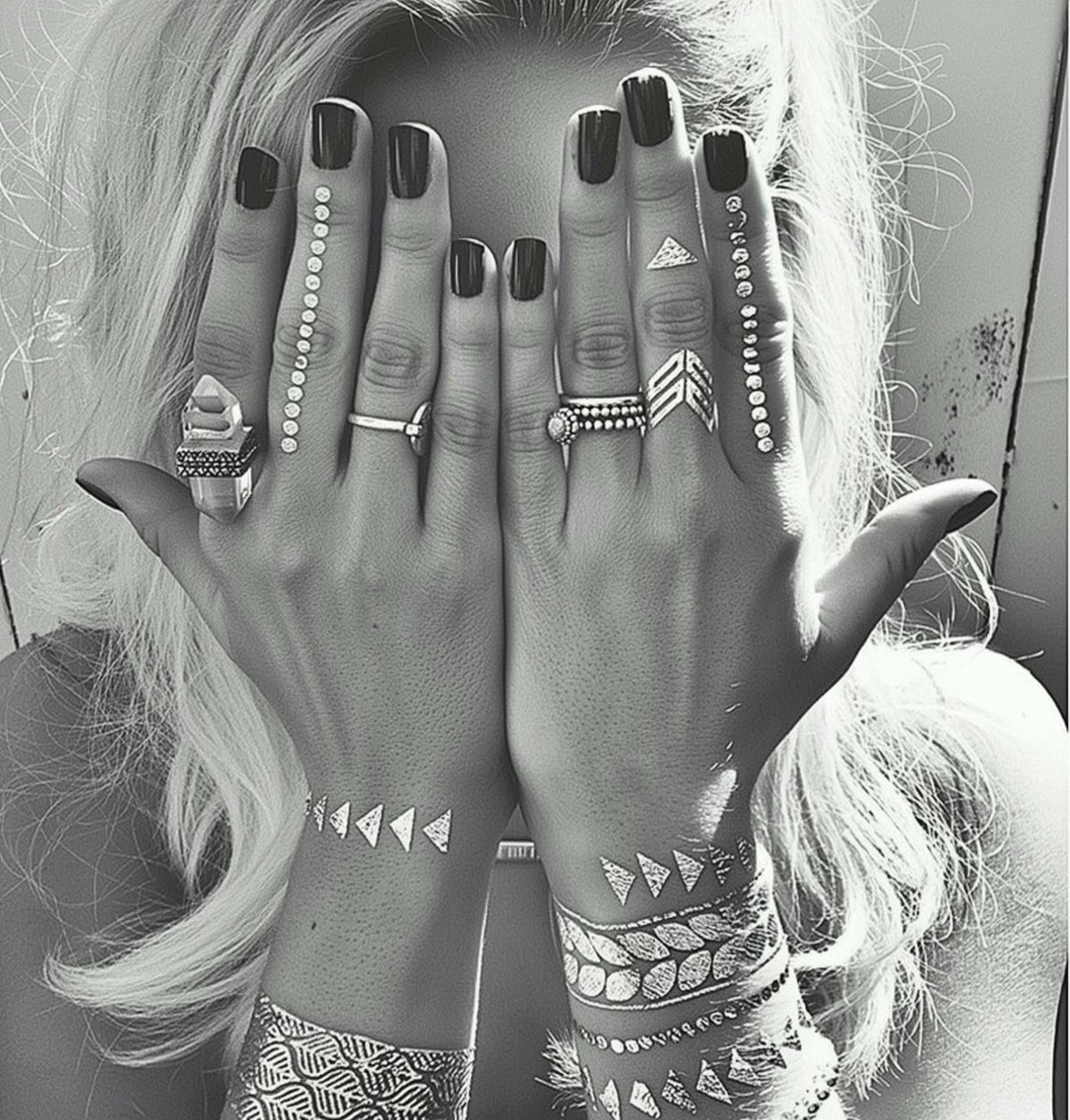 Mercury in the 9th House: The Mystic Messenger
Mercury in the 9th House: The Mystic Messenger
 Sun Square Pluto Synastry: You’ve Got That Power Over Me
Sun Square Pluto Synastry: You’ve Got That Power Over Me
 The Neptunian: Highs, Heartache, and the Water Slide of Disclosure
The Neptunian: Highs, Heartache, and the Water Slide of Disclosure
 Uranus Transits Mars: My Carbon Footprint Intervention
Uranus Transits Mars: My Carbon Footprint Intervention
 Mars in the 12th House: Are You a Passive Victim of Weird Energies?
Mars in the 12th House: Are You a Passive Victim of Weird Energies?
 Saturn Square Pluto Natal Aspect
Saturn Square Pluto Natal Aspect
 Pluto in Aquarius: Collective Welfare
Pluto in Aquarius: Collective Welfare
 Venus Trine Pluto: Dark Desires
Venus Trine Pluto: Dark Desires